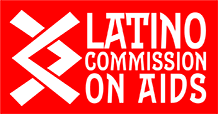|
|
Hands United
 |
David García, Ed.D., M.P.H.
Director of Capacity Building, Research & Evaluation
dgarcia@latinoaids.org
(646) 375.4413 |
What is Hands United?
 Hands United is a capacity-building program designed to assist community-based organizations with developing organizational infrastructure, along with guiding the implementation, adaptation, quality assurance and evaluation activities of effective behavioral HIV prevention interventions. Our work follows the CHANGE model (Vega, 2009) in making sure that the capacity building activities are responsive to organizations' needs. We work throughout the U.S., as well as in Puerto Rico and the U.S. Virgin Islands.
Hands United is a capacity-building program designed to assist community-based organizations with developing organizational infrastructure, along with guiding the implementation, adaptation, quality assurance and evaluation activities of effective behavioral HIV prevention interventions. Our work follows the CHANGE model (Vega, 2009) in making sure that the capacity building activities are responsive to organizations' needs. We work throughout the U.S., as well as in Puerto Rico and the U.S. Virgin Islands.
 Hands United will provide capacity building assistance through three sub-components:
Hands United will provide capacity building assistance through three sub-components:
1 Organization Development and Management
2 HIV Testing
3 Prevention with Positives
How does Hands United provide capacity building?
A. Needs Assessments. Assessment consist of a on-site visit, interviews, review of written documents and other procedures. All of this with the objective to determine priorities for the implementation of HIV prevention programs.
B. Skills Building. Trainings to increase the agency's capacity to implement community mobilization models. Provided in English or Spanish, for 1-3 days, and at varying difficulty levels.
C. Technical Consultations & Coachings. Usually given in conjunction with or as a follow up to the skills building activities to increase the agency's capacity to implement community mobilization models. Provided in English or Spanish, for 1-3 hours or a full day, and at varying difficulty levels.
D. Technology Transfers. A variety of technology transfers are available, including, but not limited to, revision/review of tools and materials (i.e. brochures, surveys, proposals), GIS maps, and data entry templates.
E. Technical Services. Technical services include, but are not limited to, data analysis, evaluation report write ups, review of adaptation materials, and community assessments.
 |
 |
CBA Connect Newsletter - May 2013
Volume 9, Issue 1.
This Issue contains the following articles:
- Engaging the community in Times of Change
- The Mid-West Training Institute
- Communities of Faith
- The Hispanic Healthcare Worker Model
- National Hispanic Hepatitis Awareness Day
 
|
|
|
Expertise on Behavioral Interventions
 |
Choosing Life: Empowerment! Action! Results! (CLEAR)
This intervention is an evidence-based, health promotion intervention for males and females ages 16 and older living with HIV/AIDS or at high-risk for HIV. CLEAR is a client-centered program delivered one-on-one using cognitive behavioral techniques to change behavior.
|
|
|


